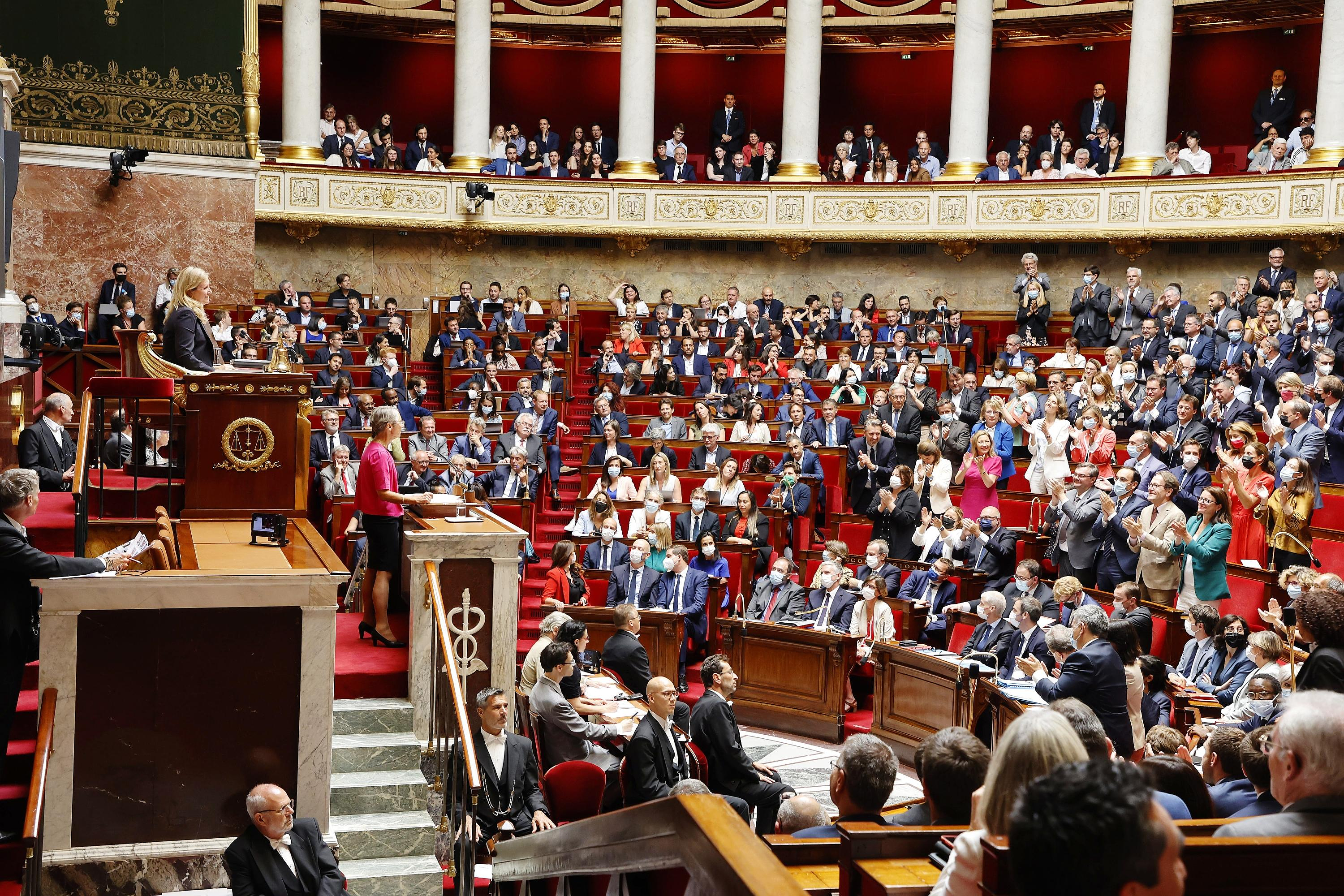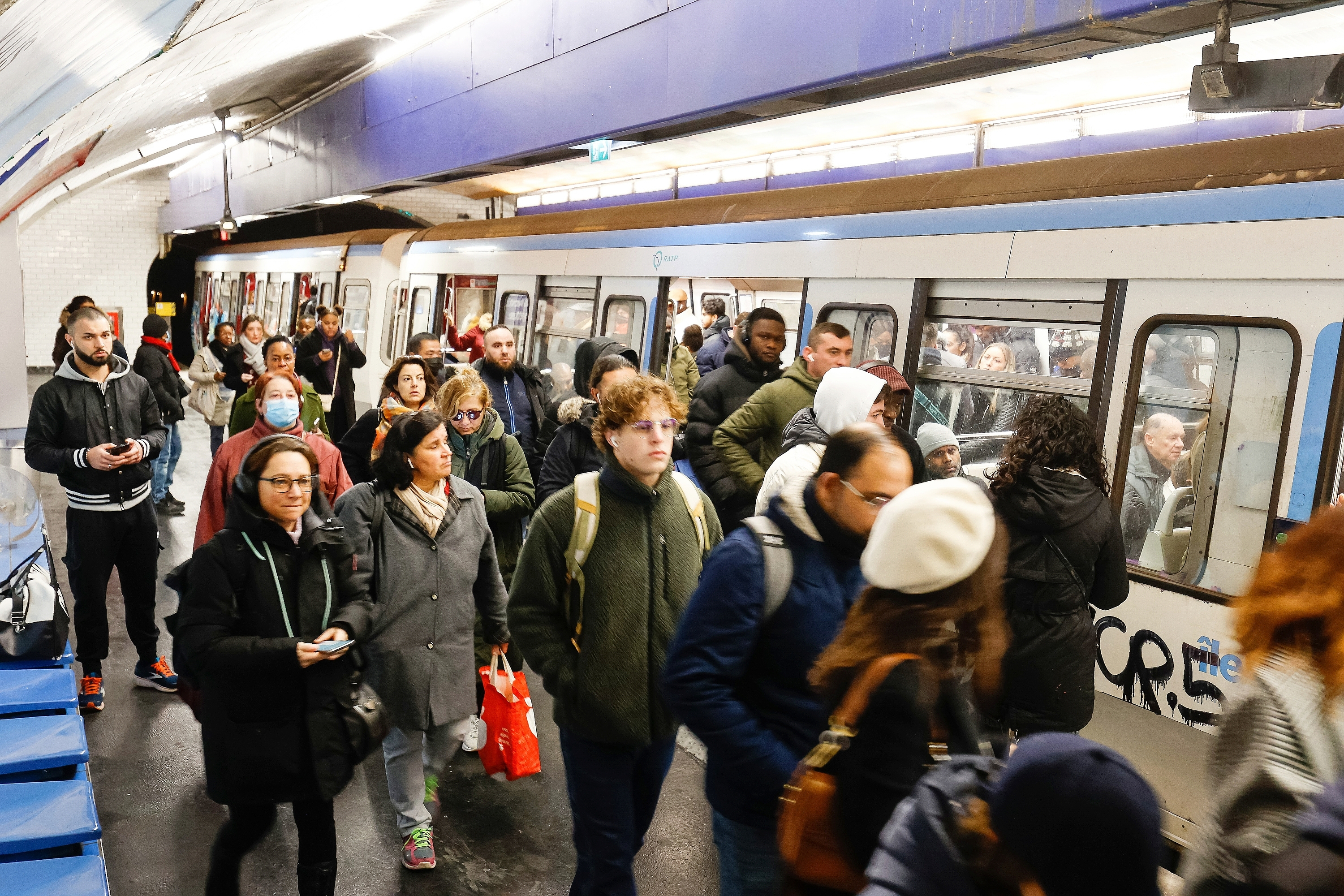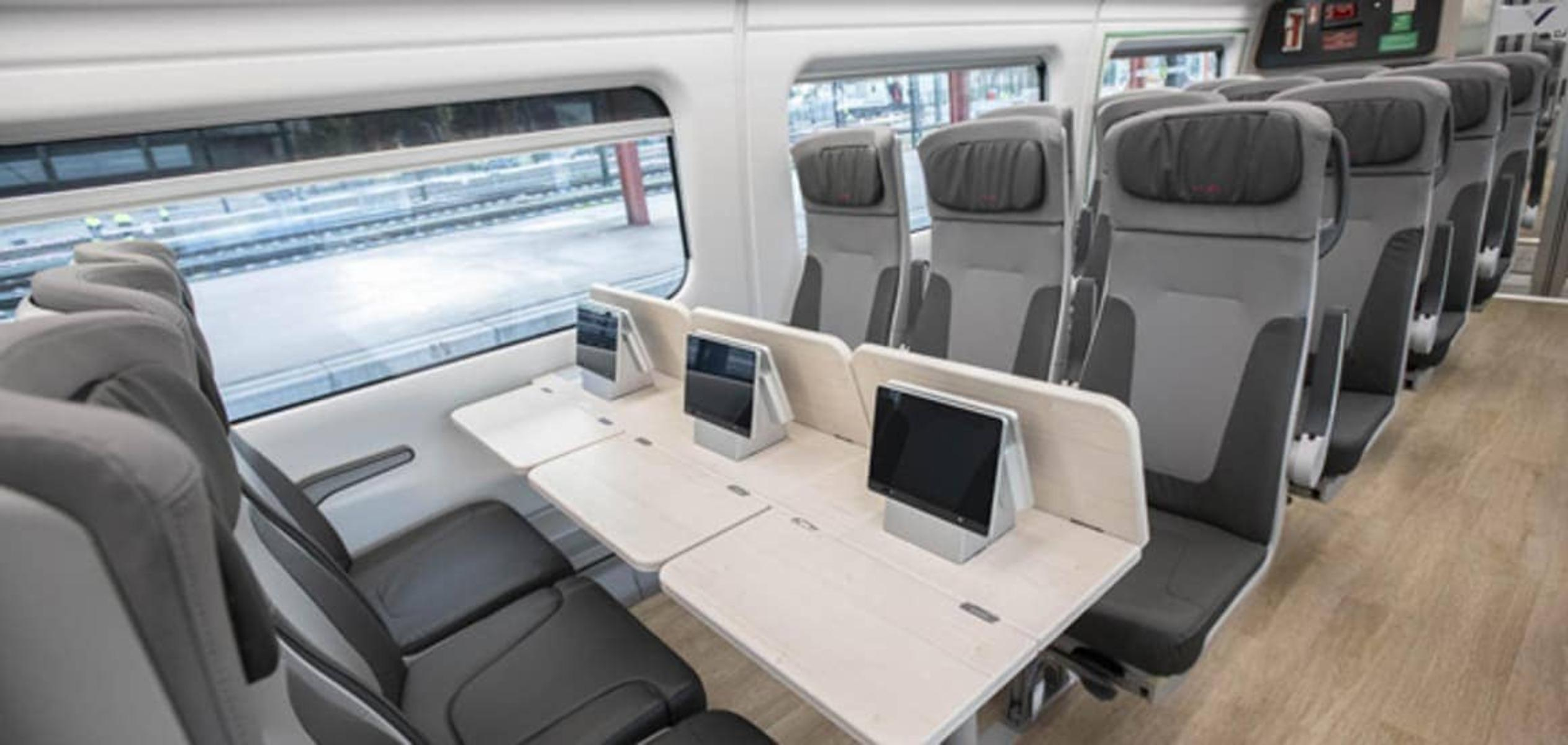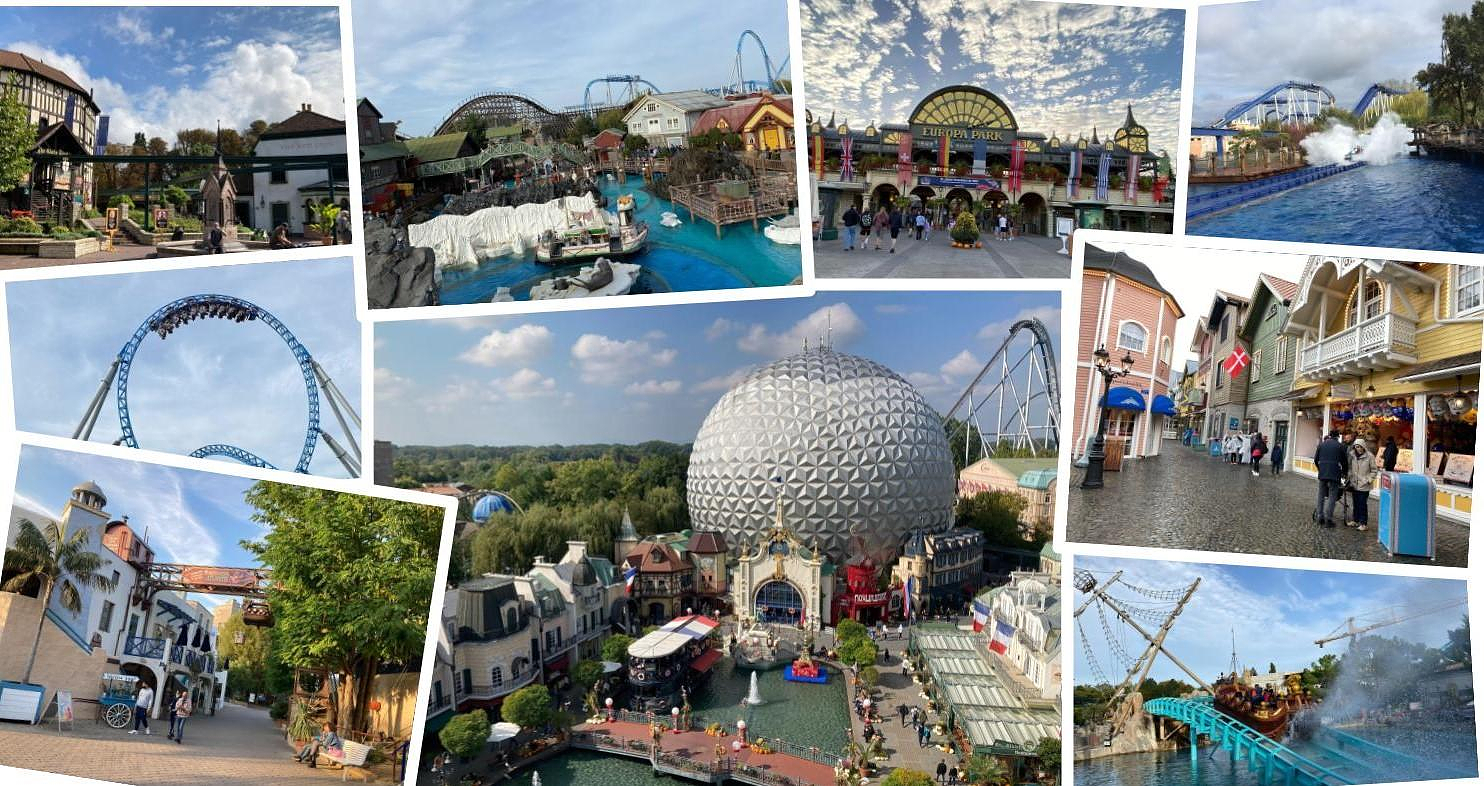At the end of the year, games and toys are at the heart of families' concerns: parents are looking for the best gift while their children are already starting to write their letter to Santa. Although they only see the finished products, behind the scenes, the sector has continued to innovate in recent months, starting with sustainable development issues. For Florent Leroux, president of the French Federation of Toy and Childcare Industries (FJP), this is an “unavoidable issue and above all a major responsibility towards future generations”. An observation shared by Philippe Gueydon, co-president of the Federation of Retailers specializing in Toys and Children's Products (FCJPE): "We are taking an active part in the implementation of more responsible consumption patterns."
On the distributor side, several measures have made it possible to partially reduce their environmental impact. Starting with the Spark solution, adopted by King Cadeau last September, which allows packages to be adapted to the dimensions of the products they contain. Concretely, this automated machine “helps to reduce the volume of vacuum transported by 45%”. In addition to cardboard, brands have also thought about saving paper, while large retailers have been called for several months to stop using paper catalogs. JouéClub thus printed 10 million copies this year, compared to 11 million in 2022. Its counterpart King Cadeau reduced the number of printings of its toy catalogs by 30% over three years, “i.e. a saving of around 600 tonnes of paper,” specifies a report from the FJP, the FCJPE and Ecomaison. The Kingtoy brand also managed to reduce its energy consumption by 25% in 2023, compared to 2022.
Also read “France manages to hold its own”: faced with the Chinese juggernaut, tricolor toys are putting up resistance
On the shelves, customers have a front row seat to the innovations carried out by games and toy companies. They now have access to second-hand products, which are less expensive and more environmentally friendly. JouéClub notably launched its Troc O’ Joué system last March, in around a hundred stores. If consumers can buy second-hand toys, they can also deposit them and receive vouchers in exchange. This year, King Toy also extended its second-hand offer on its site and strengthened its spare parts offer “to allow customers to extend the life of their toys”.
Occasionally, there is also the rental of new games, “which is growing more and more this year”, note specialists in the sector. The Toys Sajou brand rolled out its rental service this year with around a hundred board games available. If retirees and families are there, schools are also getting involved “to play in class with students with a learning objective”, underlines Laurent Gaucher, manager of the brand. The French brand Oxybul éveil et jeux also offers around forty references for rental. The opportunity to test several games, without cluttering your home with dozens of stacked boxes.
Also readToys, meals, tree… How much will Christmas cost you this year?
Brands are also playing the recycling game, thanks to the partnership with the company EcoMaison. “With more than 1,700 toy manufacturers and distributors committed to Ecomaison and nearly 5,000 collection points deployed in 2023, the toy industry is there,” rejoices Dominique Mignon, president of this eco-organization approved by the state. Brands have also accelerated a more virtuous design of their products, like JouéClub and KingJouet which use more FSC wood, from legal forestry. Oxybul éveil et jeux uses recycled polyester in the filling of toys for toddlers.
This year, manufacturers also announced several ambitious goals. Lego thus wishes to achieve a carbon reduction of 37% by 2032 and “net zero carbon” across its entire supply chain “by 2050 at the latest”. The wooden games brand Ecoiffier is financing the reforestation of a 10-hectare plot of forest. Other brands have chosen to relocate their production, such as Asmodée which has placed 70% of its Asian production under European control, in Belgium, Germany and Eastern Europe. PiouPiou et Merveilles has relocated certain stages of its production to France, such as filling, seams, finishing, labeling or testing of its references.
To measure the eco-responsibility of games and toys, King Cadeau has set up a label to measure three criteria: materials, packaging and origin. Out of 1,600 products, 400 are equipped with them in the brand's 380 stores. While the initiatives launched in 2023 by manufacturers and distributors are laudable, there is still room for improvement to further transform this sector from top to bottom.

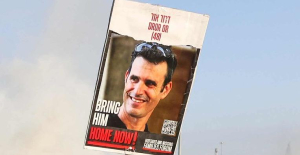 Who was Dror Or, the Israeli father who died as a hostage in the hands of Hamas?
Who was Dror Or, the Israeli father who died as a hostage in the hands of Hamas?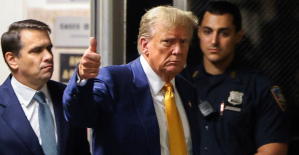 “Pay in cash”: at his trial, Donald Trump faced with an embarrassing recording
“Pay in cash”: at his trial, Donald Trump faced with an embarrassing recording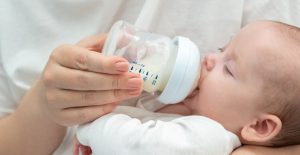 Italy: a grandmother accidentally serves a bottle filled with wine to a baby, he has an alcoholic coma
Italy: a grandmother accidentally serves a bottle filled with wine to a baby, he has an alcoholic coma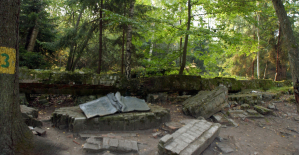 The mysterious skeletons of Hermann Göring's villa
The mysterious skeletons of Hermann Göring's villa Children born thanks to PMA do not have more cancers than others
Children born thanks to PMA do not have more cancers than others Breast cancer: less than one in two French women follow screening recommendations
Breast cancer: less than one in two French women follow screening recommendations “Dazzling” symptoms, 5,000 deaths per year, non-existent vaccine... What is Lassa fever, a case of which has been identified in Île-de-France?
“Dazzling” symptoms, 5,000 deaths per year, non-existent vaccine... What is Lassa fever, a case of which has been identified in Île-de-France? Sánchez cancels his agenda and considers resigning: "I need to stop and reflect"
Sánchez cancels his agenda and considers resigning: "I need to stop and reflect" Health carpooling, this source of savings which arouses the ire of patients and taxis
Health carpooling, this source of savings which arouses the ire of patients and taxis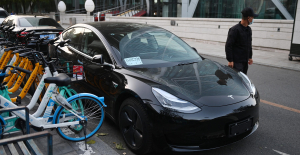 Tesla Model 3, MG4 and Dacia Spring.... With the end of the ecological bonus, these electric cars produced in China are seeing their sales fall
Tesla Model 3, MG4 and Dacia Spring.... With the end of the ecological bonus, these electric cars produced in China are seeing their sales fall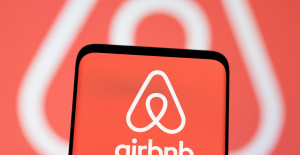 For the 2024 Olympics, Airbnb commits to fighting prostitution in its accommodation
For the 2024 Olympics, Airbnb commits to fighting prostitution in its accommodation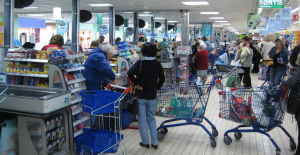 “Shrinkflation”: supermarkets obliged to alert their customers from July 1
“Shrinkflation”: supermarkets obliged to alert their customers from July 1 The electro of Justice and the echoes of Portishead
The electro of Justice and the echoes of Portishead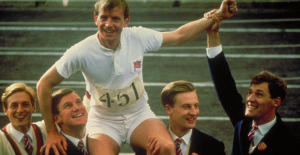 1924 Olympic Games: according to his daughter, the hero of Chariots of Fire was “not a bigot”
1924 Olympic Games: according to his daughter, the hero of Chariots of Fire was “not a bigot”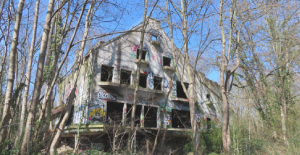 The “German Brothel” in Yvelines: an uncertain future for the ruined residence
The “German Brothel” in Yvelines: an uncertain future for the ruined residence The eye of the INA: when Paul Auster visited Bernard Pivot
The eye of the INA: when Paul Auster visited Bernard Pivot Omoda 7, another Chinese car that could be manufactured in Spain
Omoda 7, another Chinese car that could be manufactured in Spain BYD chooses CA Auto Bank as financial partner in Spain
BYD chooses CA Auto Bank as financial partner in Spain Tesla and Baidu sign key agreement to boost development of autonomous driving
Tesla and Baidu sign key agreement to boost development of autonomous driving Skoda Kodiaq 2024: a 'beast' plug-in hybrid SUV
Skoda Kodiaq 2024: a 'beast' plug-in hybrid SUV The home mortgage firm rises 3.8% in February and the average interest moderates to 3.33%
The home mortgage firm rises 3.8% in February and the average interest moderates to 3.33% This is how housing prices have changed in Spain in the last decade
This is how housing prices have changed in Spain in the last decade The home mortgage firm drops 10% in January and interest soars to 3.46%
The home mortgage firm drops 10% in January and interest soars to 3.46% The jewel of the Rocío de Nagüeles urbanization: a dream villa in Marbella
The jewel of the Rocío de Nagüeles urbanization: a dream villa in Marbella Facing Jordan Bardella, the popularity match turns to Gabriel Attal’s advantage
Facing Jordan Bardella, the popularity match turns to Gabriel Attal’s advantage Europeans: a senior official on the National Rally list
Europeans: a senior official on the National Rally list Blockade of Sciences Po: the right denounces a “drift”, the government charges the rebels
Blockade of Sciences Po: the right denounces a “drift”, the government charges the rebels Even on a mission for NATO, the Charles-de-Gaulle remains under French control, Lecornu responds to Mélenchon
Even on a mission for NATO, the Charles-de-Gaulle remains under French control, Lecornu responds to Mélenchon These French cities that will boycott the World Cup in Qatar
These French cities that will boycott the World Cup in Qatar Monaco - Clermont: Minamino cornerstone, Fofana essential, the Clermont defense overwhelmed... The tops and the flops
Monaco - Clermont: Minamino cornerstone, Fofana essential, the Clermont defense overwhelmed... The tops and the flops Gymnastics: two gold medals for the Italian Manila Esposito during the European Championships
Gymnastics: two gold medals for the Italian Manila Esposito during the European Championships Champions Cup: in pain, Leinster beats Northampton and qualifies for the final
Champions Cup: in pain, Leinster beats Northampton and qualifies for the final Liga: Real Madrid crowned champion of Spain after FC Barcelona's defeat in Girona
Liga: Real Madrid crowned champion of Spain after FC Barcelona's defeat in Girona




